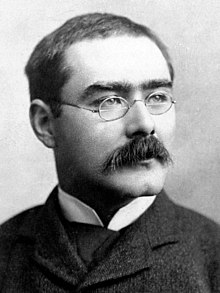
English Nobel laureates
The Nobel Prize in Literature (Swedish: Nobelpriset i litteratur) is awarded annually by the Swedish Academy to authors for outstanding contributions in the field of literature. It is one of the five Nobel Prizes established by the 1895 will of Alfred Nobel, which are awarded for outstanding contributions in chemistry, physics, literature, peace, and physiology or medicine.
5 episodes
Episodes in this category also belong to the following categories:
Bertrand Russell
Melvyn Bragg and his guests discuss the influential 20th-century British thinker Bertrand Russell, widely regarded as one of the founders of Analytical philosophy.
6 December 2012
Featuring: A. C. Grayling, Mike Beaney, Hilary Greaves
PhilosophyNobel laureates in LiteratureBritish philosophers of languageGeorgistsEnglish political writersFree love advocatesSet theoristsAristotelian philosophersWriters about religion and scienceJerusalem Prize recipientsFellows of Trinity College, CambridgeEnglish logiciansPhilosophers of mathematicsBritish historians of philosophyEmpiricistsOntologistsMetaphysics writersBritish political philosophersFellows of the Royal SocietyMetaphilosophersTheorists on Western civilizationBritish ethicistsPhilosophers of literatureBritish free speech activists20th-century English philosophersAnalytic philosophersEnglish humanistsRhetoric theoristsAtheist philosophersEnglish political philosophersEnglish anti-fascistsEnglish people of Scottish descentPhilosophers of historyEnglish agnostics20th-century atheistsConsequentialistsEnglish socialistsPhilosophers of social scienceBritish philosophers of religionPresidents of the Aristotelian SocietyLogiciansPhilosophers of lawPhilosophers of sexuality19th-century English mathematiciansCritics of work and the work ethicSecular humanistsPhilosophers of technologyPhilosophers of economicsWriters about globalizationBritish philosophers of educationBritish philosophers of culture, English pacifistsBritish philosophers of logicCritics of the Catholic ChurchPeople from MonmouthshireAlumni of Trinity College, CambridgeLinguistic turnPhilosophers of loveEuropean democratic socialistsBritish consciousness researchers and theoristsWriters about activism and social changeEnglish Nobel laureatesMembers of the Order of MeritEnglish prisoners and detaineesUtilitariansIntellectual historians, University of Chicago facultyEnglish scepticsBritish critics of ChristianityEnglish people of Welsh descentUniversal basic income writersBritish philosophers of mind19th-century English philosophersBritish critics of religionsAcademics of the London School of Economics, British philosophers of science19th-century atheistsUniversity of California, Los Angeles facultyAnti-nationalists20th-century English mathematiciansEnglish essayistsFreethought writersBritish atheism activistsWriters about communism19th-century English essayistsEnglish male non-fiction writersDorothy Hodgkin
Melvyn Bragg and guests discuss the work, ideas and life of the woman who won the 1964 Nobel Prize in Chemistry for her work on the structures of vitamin B12 and penicillin.
3 October 2019
Featuring: Georgina Ferry, Judith Howard, Patricia Fara
ScienceMembers of the Order of MeritFellows of the Royal SocietyForeign associates of the National Academy of SciencesFellows of Somerville College, OxfordAlumni of Newnham College, CambridgeBritish biochemistsRecipients of the Austrian Decoration for Science and ArtNobel laureates in ChemistryRecipients of the Copley MedalFellows of the American Academy of Arts and SciencesWomen Nobel laureatesAlumni of Somerville College, OxfordBritish Nobel laureatesRecipients of the Dalton Medal20th-century British biologistsForeign members of the USSR Academy of SciencesEnglish Nobel laureates20th-century British chemists, British biophysicists, British crystallographersBritish scientists with disabilitiesRoyal Medal winnersPaul Dirac
Melvyn Bragg and guests discuss the Bristolian theoretical physicist, ranked alongside Einstein by his peers, who won a Nobel for his work on quantum mechanics.
5 March 2020
Featuring: Graham Farmelo, Valerie Gibson, David Berman
ScienceMembers of the Order of MeritBritish theoretical physicists, Mathematical physicistsFellows of the Royal SocietyAlumni of St John's College, CambridgeForeign associates of the National Academy of SciencesEnglish emigrants to the United StatesNobel laureates in PhysicsRecipients of the Copley MedalInstitute for Advanced Study visiting scholarsEnglish agnostics20th-century British physicists, Members of the Pontifical Academy of SciencesBritish Nobel laureatesForeign members of the USSR Academy of Sciences20th-century English mathematiciansAcademic staff of the University of GöttingenMembers of the American Philosophical SocietyWinners of the Max Planck MedalEnglish Nobel laureatesRoyal Medal winnersRudyard Kipling
Melvyn Bragg and his guests discuss the life and work of Rudyard Kipling, a writer sometimes described as the poet of empire.
16 October 2014
Featuring: Howard Booth, Daniel Karlin, Jan Montefiore
Culture20th-century English novelistsMythopoeic writers19th-century English short story writersNobel laureates in Literature20th-century English male writers20th-century English poetsEnglish male short story writersBurials at Westminster AbbeyEnglish hymnwritersVictorian novelists19th-century English novelistsEnglish-language poets from IndiaMaritime writers19th-century English non-fiction writersEnglish children's writersFreemasons of the United Grand Lodge of EnglandRectors of the University of St AndrewsEnglish science fiction writersEnglish male novelistsFellows of the Royal Society of Literature20th-century English memoiristsBritish Nobel laureates19th-century English poetsDeaths from ulcersEnglish Nobel laureatesEnglish anti-fascistsEnglish people of Scottish descentPeople of the Victorian eraRutherford
Melvyn Bragg discusses Ernest Rutherford. He is seen as the father of nuclear science, a great charismatic figure who mapped the landscape of the sub-atomic world.
19 February 2004
Featuring: Simon Schaffer, Jim Al-Khalili, Patricia Fara
ScienceHonorary Fellows of the Royal Society of EdinburghPersons of National Historic Significance (Canada)Foreign associates of the National Academy of Sciences19th-century British physicistsKnights BachelorAcademics of the Victoria University of ManchesterBurials at Westminster AbbeyExperimental physicistsRecipients of Franklin MedalNobel laureates in ChemistryRecipients of the Copley MedalFellows of Trinity College, Cambridge20th-century British physicists, Members of the Pontifical Academy of SciencesRadio pioneersCorresponding Members of the Russian Academy of Sciences (1917–1925)Honorary members of the USSR Academy of Sciences, Recipients of the Matteucci MedalBritish Nobel laureatesDiscoverers of chemical elementsRecipients of the Dalton MedalCavendish Professors of PhysicsMembers of the American Philosophical SocietyEnglish Nobel laureates20th-century British scientists




